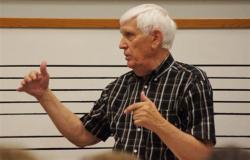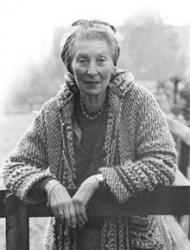Planning worship?
Check out our sister site, ZeteoSearch.org,
for 20+ additional resources related to your search.
- |
User Links
Person Results
John Wilson
1905 - 1992 Person Name: John Wilson, 1905-1922 Editor of "SONG 34 (ANGEL'S SONG)" in Singing the Faith Born January 21, 1905, in Bournville, Birmingham, England; died July 16, 1992, in Guildford, Surrey, England. He served as Vice President of the Hymn Society of Great Britain and Ireland, and was a Fellow of the Hymn Society in the United States and Canada.
Leland Bryant Ross from a biographical article in the journal of the Hymn Society of Great Britain and Ireland: https://hymnsocietygbi.org.uk/1992/10/treasure-no-58-john-wilson-1905-92
John Wilson
F.-H. Barthélémon

1741 - 1808 Person Name: François H. Barthélémon, 1741-1808 Composer of "MORNING HYMN" in Pilgrim Hymnal French violinist, composer, teacher, he became active in England, playing in an Italian comedy orchestra and led a band. He wrote opera, ballet, theatre music and ballads, popular songs, masques, concertos and 6 symphonies.
John Perry
F.-H. Barthélémon
Bartholomäus Crasselius

1667 - 1724 Person Name: Crasselius, 1667-1724 Composer of "CRASSELIUS or WINCHESTER NEW" in Hymns and Chorales Crasselius, Bartholomäus, son of Johannes Crasselt, sheepmaster at Wemsdorf near Glauchau, Saxony; was born at Wernsdorf, Feb. 21, 1667. After studying at Halle, under A. H. Francke, he became, in 1701, pastor at Nidda, in Wetteravia, Hesse. In 1708 he was appointed Lutheran pastor at Düsseldorf, where he died Nov. 30, 1724, after a somewhat troubled pastorate, during which he felt called upon to testify strongly and somewhat bitterly against the shortcomings of the place and of the times (Koch, iv. 418-421; Allg. Deutsche Biographie, iv. 566-67; Bode, p. 55; manuscript from Pastor Baltzer, Wernsdorf; the second dating his call to Dusseldorf 1706). Of the 9 hymns by him which Freylinghausen included in his Geistreiches Gesang-Buch, 1704, two have been translated:—
i. Dir, dir, Jehovah, will ich singen. Prayer. A hymn of supplication for the spirit of grace rightly to praise and worship God, founded on St. John, xvi. 23-28, the Gospel for Rogation Sunday. First published in the Geistreiches Gesang-Buch &., Halle, 1697, p. 587, in 8 stanzas of 6 lines. Repeated as No. 291 in Freylinghausen's Gesang-Buch, 1704, and since in almost all collections, as in the Berlin Geistliche Liedersegen. ed. 1863, No. 936.
The well-known tune (known in England as Winchester New as reduced to L. M. in Hymns Ancient & Modern, No. 50) which appeared with this hymn in Freylinghausen, 1704, is altered from a melody to “Wer nur den lieben Gott lasst walten," in the Musicalisch Handbuch der Geistlichen Melodien, Hamburg, 1690. See L. Erk's Choralbuch, 1863, No. 63, and p. 247; also No. 261. The common, but erroneous ascription of this tune to Crasselius arose from confusion between the authorship of the tune and the words. There is no evidence that Crasselius wrote any tunes.
Translations in common use:—
1. Jehovah, let me now adore Thee, a good and full translation by Miss Winkworth, as No. 117, in her Chorale Buch for England, 1863, set to the 1704 melody.
2. To Thee, 0 Lord, will I sing praises, in full, by Dr. M. Loy, in the Evangelical Review, Gettysburg, July 1861, and as No. 216 in the Ohio Lutheran Hymnal, 1880.
Other translations are:—
(i) "To Thee, Jehovah, I'll be singing," in the Supplement to German Psalmody, ed. 1765, p. 41, and in Select Hymns from German Psaltery, Tranquebar, 1754, p. 72. (2) "Draw me, O Father, to the Son," a translation of stanza ii., by P. H. Molther, as No. 185 in the Moravian Hymn Book, 1789. In the ed. of 1886 it is enlarged to 3 stanzas by the addition of the translation of stanzas i. and viii., and in this form it begins:—“To Thee, Jehovah, will I sing." (3) "To Thee, O Lord, I come with singing," by Miss Burlingham, in the British Herald, April, 1866, p. 248, repeated as No. 402 in Reid's Praise Book, 1872.
ii. Erwach, 0 Mensch, erwache. Lent. Appeared in Freylinghausen's Gesang-Buch, 1704, No. 266, in 4 stanzas of 9 lines. Included in Bunsen's Versuch, 1833, No. 298, and Allgemeine Gesang-Buch 1846, No. 13. Translated as "Awake, O man, and from thee shake," by Miss Winkworth, 1855, p. 61.
The hymn, "Heiligster Jesu, Heiligungsquelle," ascribed to Crasselius, is noted under J. v. Lodenstein. See also "Hallelujah! Lob, Preis und Ehr." [Rev. James Mearns, M.A.]
--John Julian, Dictionary of Hymnology (1907)
Bartholomäus Crasselius
Charles Zeuner
1795 - 1857 Person Name: Charles Heinrich Zeuner (1795-1857) Composer of "MISSIONARY CHANT" in The Christian Hymnary Also:
Zeuner, Heinrich Christoph, 1795-1857
Zeuner, Heinrich Christopher, 1795-1857
Charles Zeuner
Jack Boyd

b. 1932 Arranger of "SONG XXXIV" in Great Songs of the Church (Revised) Jack Arthur Boyd (b. Indianapolis, Indiana, February 9, 1932) was the music editor of *Great Songs of the Church, Revised*, published by ACU Press in 1986. He earned a B.S. degree in music education from Abilene Christian University, a masters degree in music composition and theory from the University of North Texas, and a Ph.D. in choral literature from the University of Iowa. Boyd edited *Children, Rejoice!* (Sweet, 1979) and he authored *Rehearsal Guide for the Choral Director* (Parker, 1970) and *Leading the Lord's Singing* (Quality, 1981). He is a member of Churches of Christ and lives in Abilene, Texas.
Monty Lynn
Jack Boyd
William Boyd
1847 - 1928 Person Name: Rev. William Boyd Composer of "PENTECOST" in The Smaller Hymnal William Boyd Jamaica 1847-1928. Born at Montego Bay, he studied under Sabine-Baring Gould, and attended Worcester College,Oxford. He was ordained an Anglican priest in 1877, eventually becoming Vicar at All Saints Church, Norfolk Square, London.
John Perry
William Boyd
Elizabeth Poston

1905 - 1987 Person Name: E. P. Descant of "ANGEL'S SONG" in The Cambridge Hymnal Elizabeth Poston (24 October 1905 – 18 March 1987) was an English composer, pianist, and writer.
See more in:
Wikipedia
Elizabeth Poston
Berthold Tours
1838 - 1897 Person Name: B. Tours Composer of "MARKEN" in The Church Hymnary
Berthold Tours
Samuel Dyer
1785 - 1835 Person Name: S. Dyer Arranger of "MENDON" in The Primitive Methodist Church Hymnal Rv Samuel Dyer United Kingdom 1785-1835. Born in White Chapel, Hampshire, the family moved to Wellshire, England, where he was ordained and served as a Baptist minister. In 1806 the family moved to Coventry, and Samuel emigrated to the U.S. in 1811. He married Renee Novak. He taught music and directed choirs in New York City and Philadelphia, PA. He later moved to Baltimore, MD, and wrote, conducted singing schools in the south and east, and conducted the New York Sacred Music Society. He published “New selection of sacred music” (1817), “Anthems” (1822 & 1834), and “The Philadelphia collection of sacred music” (1828). He died in Hoboken, NJ.
John Perry
Samuel Dyer


 My Starred Hymns
My Starred Hymns

